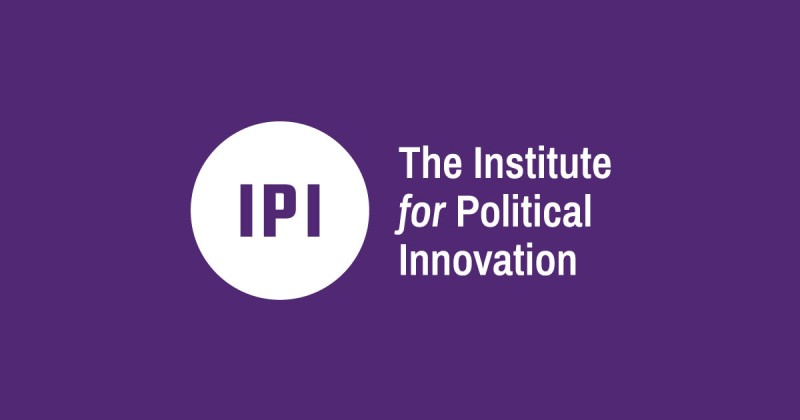Deep Center-Right Insights Applied to New Narrative for Democracy
Deeper understandings of key demographics
More nuanced messaging recommendations

Partnership with Issue One
In 2022, Issue One partnered with Citizen Data to construct a new, uplifting narrative around American democracy. There were two primary goals:
- Gain a deeper understanding of American perceptions of democracy
- Gather insights into which types of messages are most compelling to those with doubts about elections
Issue One chose Citizen Data because of our innovative research tools, as well as our experience and expertise in the democracy realm.
Mike Melanson, Project Lead for New Democracy Narrative
Taking a mixed methods approach, Issue One deployed two quantitative surveys and four qualitative focus groups. The focus groups were a critical component in providing nuanced insights from a very specific target audience.
These insights contributed to the Issue One New Narrative Report, which provides meaningful guidance for the pro-democracy movement into the 2024 election and beyond.
The Difficulty Achieving Specificity and Depth
Before the focus groups, Issue One gathered illuminating insights on American perceptions of democracy and election security.
However, some gaps still existed; gaps in which qualitative focus groups were most appropriate to fill. These included:
- Sampling:
- Enriching survey data with qualitative focus groups allows you to use purposive sampling — where participants with certain characteristics are recruited for a specific purpose — to dig into the views of those who are most critical to understand when it comes to election messaging.
- Deep understanding:
- Diving into why certain messages perform well; which specific words are appealing or off-putting; and which emotions messages stir up in people.
Focus groups open up the potential to do a deep dive into, for instance, the views of Georgian Conservatives with doubts about elections. Targeting participation in such a directed way helped us better understand the impact of election messaging on those who Issue One most wanted to capture.
Creating a Shared Identity Across Lines of Difference
With these focus groups, Issue One constructed a sense of shared identity to help the group feel comfortable sharing sensitive — and sometimes socially undesirable — opinions. To do so, we organized groups that all lived in the same state and were on the same side of the political spectrum. This was made clear at the outset to encourage participants to share more openly.
Mike Melanson, Project Lead for New Democracy Narrative
To delve into concerns around election security, we focused on the battleground states of Georgia, Michigan, Pennsylvania, and Wisconsin. We then balanced the composition of each group by requiring half to be Conservatives who trust in elections and half to be Conservatives with some doubts about election security.
Running from July 8 to July 12, 2022, the focus group research consisted of four sessions with 7–8 participants. The primary goals were to:
- Explore nuanced positions on trust and distrust in elections
- Obtain a deeper understanding of which messages, messengers, and actions hold the greatest potential for enhancing trust
- Test reactions to specific messaging on election security
The Results: Nuanced Understandings around Election Sentiments
One key takeaway from Issue One’s previous research was to focus on forward-looking messaging. Testing backward-looking messaging in the first two focus groups put any doubts about this to bed. Participants shared their disdain for the content and refused to engage with it, stating that they were fed up with talking about 2020.
There was widespread rejection of the Big Lie among the center-right groups, despite serious concerns around small-scale election fraud. Additionally, participants across all groups felt that their local and state elections were more trustworthy than national ones, revealing the importance of humanization and familiarity in strengthening trust in elections.
We were able to dive into specific terms participants found either off-putting or appealing. Crucially, commonsense and fairness were particularly effective words, while themes of restoring the core values of American democracy, empowering everyday Americans, and giving everyone an equal say received passionate agreement.
These findings provide Issue One with data, not just on a message in its entirety, but on which particular words and themes most resonate with people; and which emotions they evoke. This will help to inform their ongoing message and communications going forward.
Mike Melanson, Project Lead for New Democracy Narrative
Ultimately, the focus groups enriched survey findings with deeper understandings and more nuanced recommendations for election-related messaging. They both affirmed and challenged Issue One’s assumptions and enhanced its final messaging recommendations.
Citizen Data has expanded its focus group — and other qualitative products — to better understand how to reach and persuade Americans across the political spectrum. We’re committed to eliciting deeper insights on these complicated issues to give partners actionable insights and drive change together.
Are you looking for deep, qualitative understandings, whether related to democracy, elections, or how various messages resonate with Americans? Please reach out.
Determining the Viability of Final-Five Voting in Nevada
In 2022, multiple state-based organizations gathered signatures and brought Question 3, a measure to enact Final-Five Voting (FFV) in Nevada, to the ballot. With Citizen Data’s history of research and assistance in passing a similar vote method in Alaska in 2020, we were perfectly positioned to assists with the campaign.
